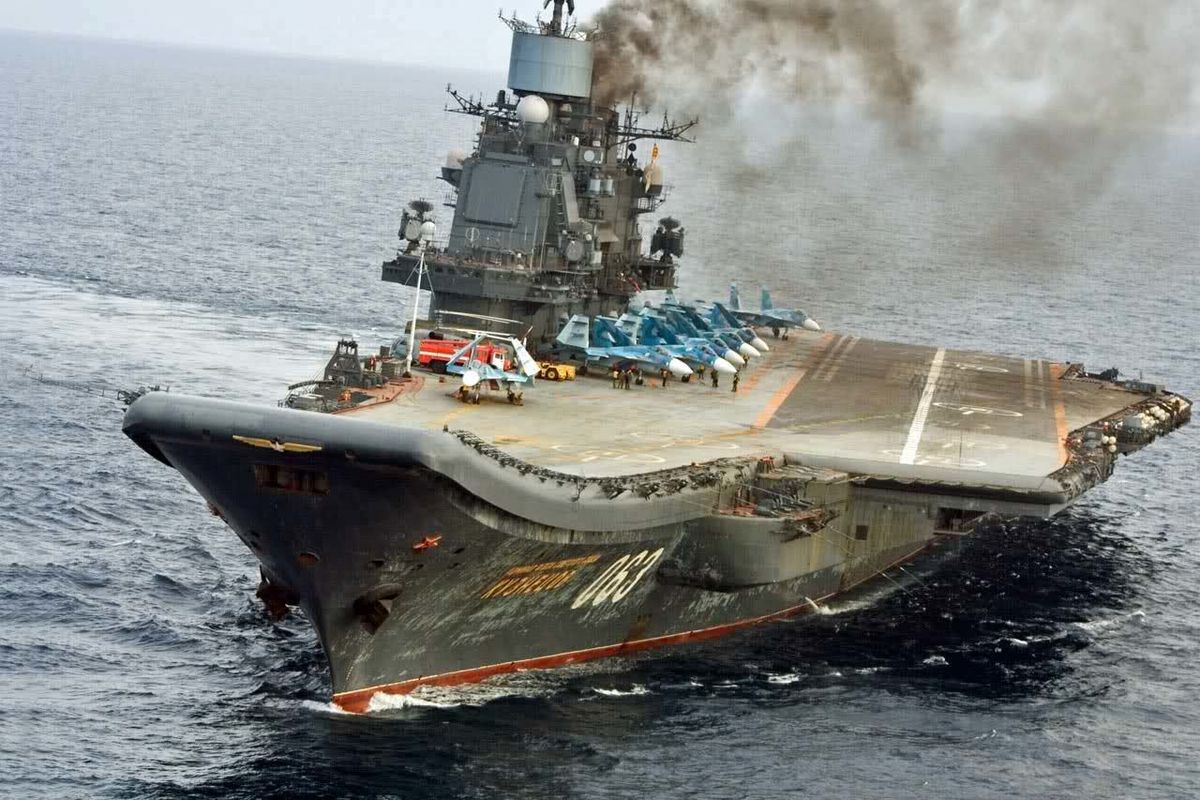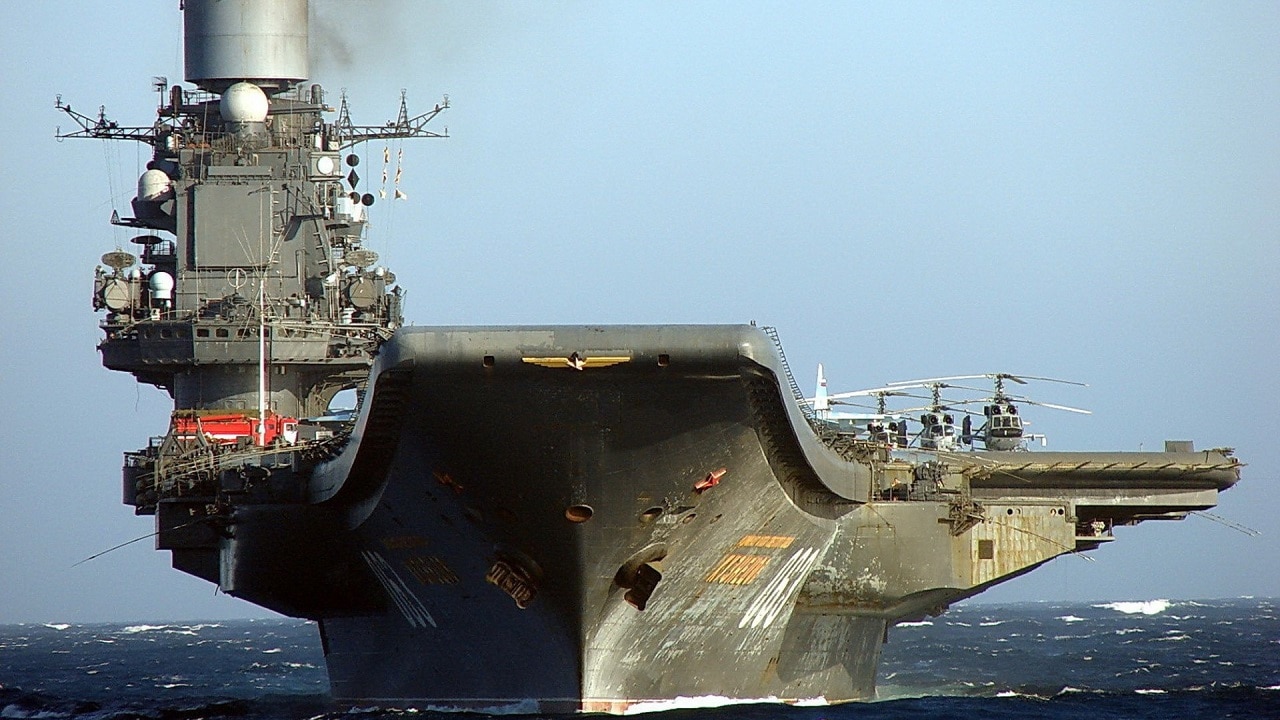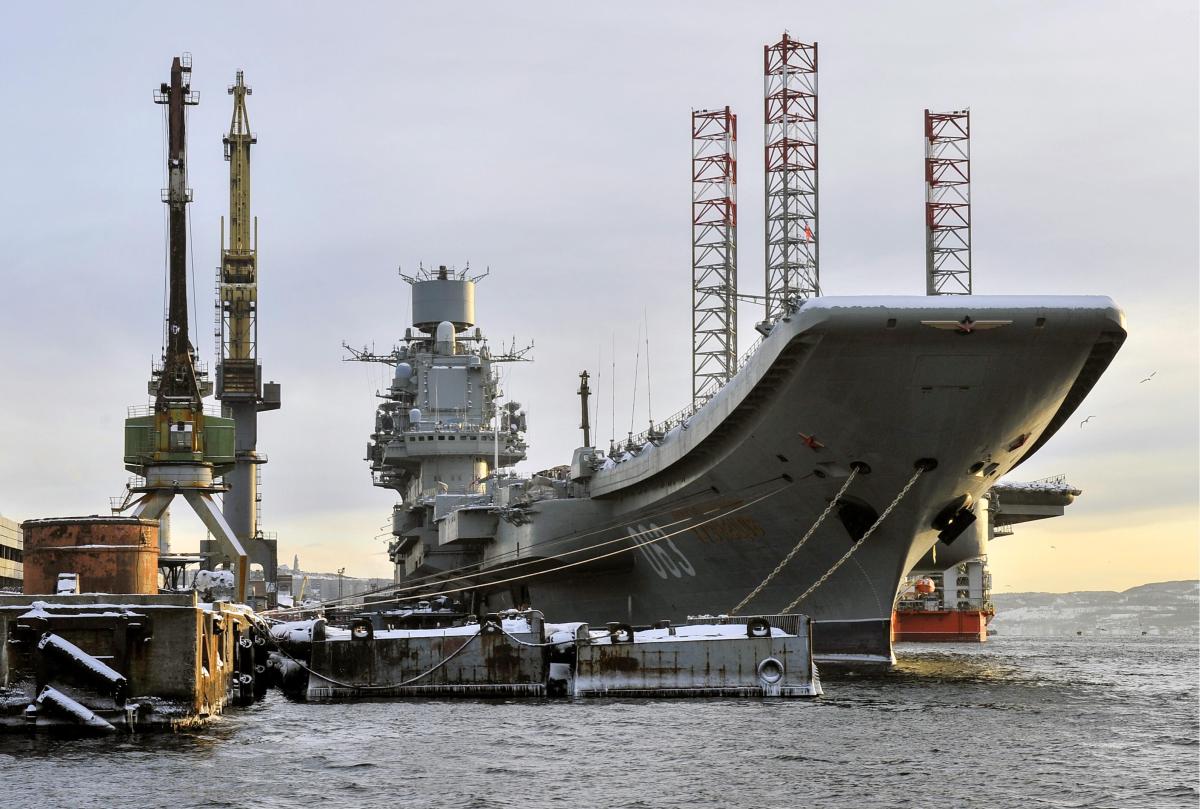Admiral Kuznetsov Aircraft Carrier – Russia’s Mighty Flagship

The Admiral Kuznetsov, named after the Soviet Navy’s Admiral of the Fleet Nikolay Gerasimovich Kuznetsov, is a formidable aircraft carrier that symbolizes Russia’s naval power and capabilities. Commissioned in 1991, the carrier has since served as a significant asset in the Russian Navy’s fleet. This article delves into the history, design, capabilities, and operational significance of the Admiral Kuznetsov.

The Admiral Kuznetsov, also known as the Project 1143.5 aircraft carrier, was built by the Black Sea Shipyard in Mykolaiv, Ukraine. It was laid down in 1982 and finally commissioned in 1991 by the Russian Navy, shortly before the collapse of the Soviet Union. The carrier was intended to replace the aging Kiev-class carriers and enhance Russia’s naval power projection capabilities.

The Admiral Kuznetsov is a large, nuclear-powered aircraft carrier measuring around 1,001 feet (305 meters) in length and displacing over 58,500 tons at full load. It features a ski-jump flight deck, which allows aircraft to take off with a shorter runway, making it well-suited for operating fixed-wing aircraft in comparison to catapult-assisted takeoff systems used on other carriers.
The carrier can accommodate a mix of fixed-wing aircraft and helicopters, with its air wing comprising a variety of aircraft like Sukhoi Su-33 and Mikoyan MiG-29K/KUB multirole fighters, as well as Kamov Ka-27 and Ka-31 helicopters for anti-submarine warfare and reconnaissance operations.

The Admiral Kuznetsov plays a vital role in Russia’s military strategy as it extends the country’s reach and power projection capabilities. As the only aircraft carrier in the Russian Navy, it allows Russia to conduct long-range operations, support amphibious assaults, and project air power over vast maritime regions.
In addition to its offensive capabilities, the carrier also serves as a command and control center for naval task forces, enhancing coordination and efficiency during operations. The Admiral Kuznetsov can support various missions, including air superiority, maritime strike, and anti-surface warfare, making it a versatile asset for the Russian Navy.

The Admiral Kuznetsov has been deployed on several occasions, notably taking part in military operations in the Syrian Civil War. In 2016, it was involved in the Russian military intervention in Syria, where its aircraft conducted airstrikes against targets in support of the Syrian government.

However, the carrier has also faced challenges, including technical issues and accidents during deployments. Notably, in 2016, a MiG-29K crashed into the Mediterranean Sea due to a technical failure while attempting to land on the carrier. These incidents have highlighted the need for continuous maintenance and improvements to ensure the carrier’s reliability and effectiveness.
The Admiral Kuznetsov remains a symbol of Russia’s naval prowess and power projection capabilities. As the flagship of the Russian Navy, its deployment signifies the nation’s commitment to safeguarding its interests and maintaining a presence in key strategic regions. However, like any complex military asset, it faces challenges that require ongoing attention and investment. As Russia continues to develop and modernize its naval forces, the Admiral Kuznetsov will undoubtedly play a crucial role in its maritime operations for years to come.



